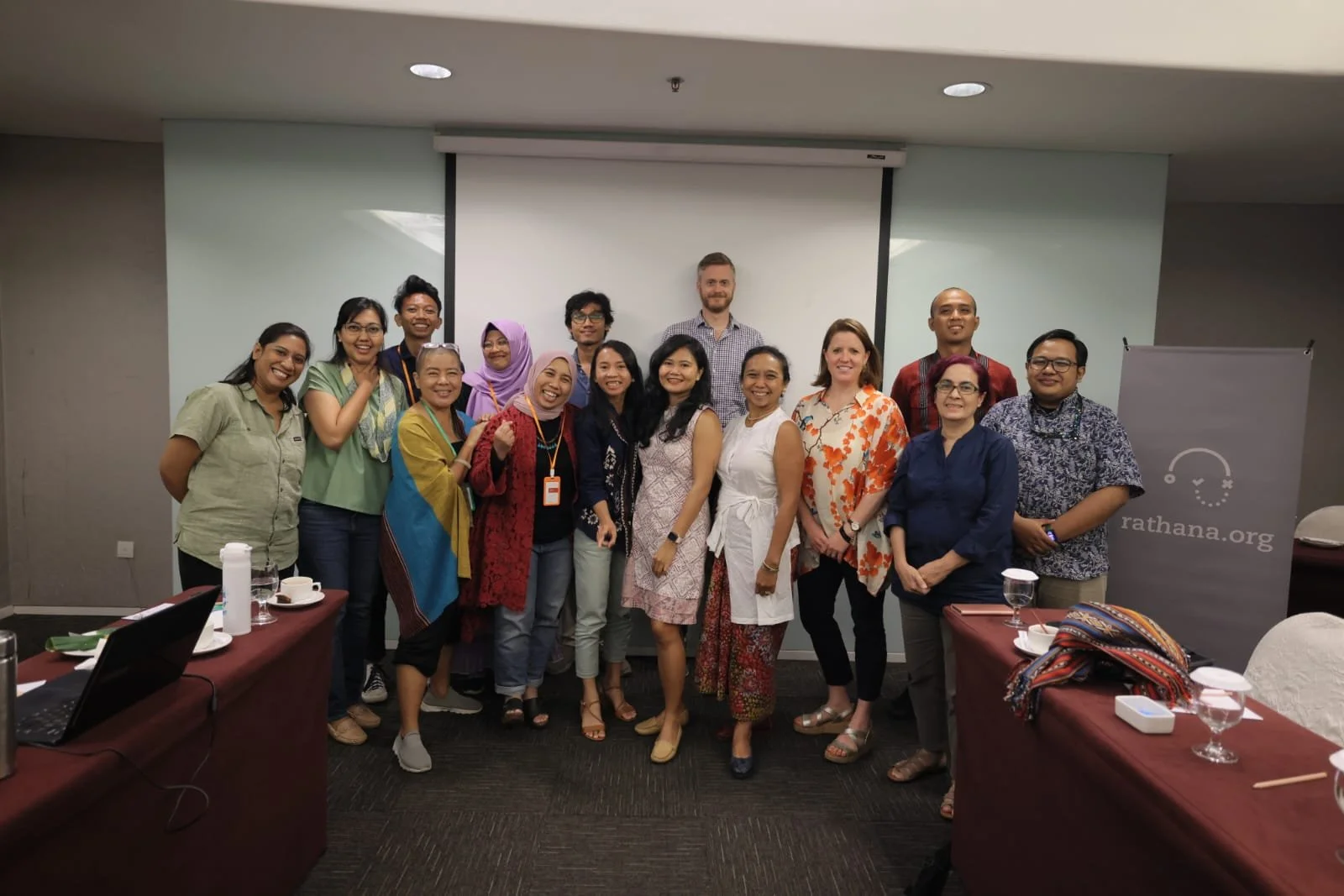JAKARTA - Indonesia's commitment to forging a sustainable future, especially in the energy sector, drives the need to reshape Indonesian policy. This is one of the key takeaways from a Forum Group Discussion (FGD) about challenges in achieving the energy transition in Indonesia, organized by Rathana and Pathway Global. The forum group discussion was held in Jakarta, on 7 March 2023. Eight participants from diverse backgrounds including a university student, researchers, grassroots organization, green energy practitioner, and influencer. They came from 3 islands in Indonesia; Jawa, Kalimantan, and Bali.
"What should we do about the energy transitions, especially in Indonesia? Where are the gaps? What should be done by the philanthropist to help with the energy transition to be fastened up," asked Caroline from Pathway Global to open the Forum Group Discussion.
"The Indonesian government from the national to the local level has a 'political will' for the renewable energy transition, but until now its implementation is still lacking," said Angga, an energy expert from Bali island.
After the lighter answer from Angga, seven other participants then began to give opinions on the condition of Indonesia's energy sector. The discussion aims to listen to several viewpoints from different backgrounds on the energy transition. Also jointly obtain information related to what initiatives and strategies have been carried out in the scope of energy transition or other climate actions that have been successful or less successful.
Indonesia uses more than 60% of its energy from coal, despite having abundant resources that could be used to generate renewable energy, such as solar, geothermal, and biodiesel. The country has the potential to generate 3,295 GW of solar power but has only produced 270 MG so far.
As long as there is no legal umbrella for reducing electricity sources from coal, there is no obligation to cut off dirty energy, which is why the energy transition has stalled.
Masayu and Sumarni, Ranu Welum staffs attended the Focus Group Discussion in Jakarta.
Each potential renewable energy solution has advantages and disadvantages, so it's important to weigh them all carefully before making any decisions. Biodiesel made from vegetable oils is promoted as a way to cut down on carbon emissions, but it actually speeds up deforestation in Kalimantan. Sumarni Laman, who joined the meeting to represent Ranu Welum, said, "Both coal mining and palm plantation for biodiesel have caused enormous impacts on the environment and our people."
As time passed, the conversation grew increasingly in-depth, covering a wide range of topics including the need for more public knowledge, lack of technology, and lack of funds.At the end of the discussion, the moderator asked the participants individually about the commitment they would give to support the energy transition in Indonesia. The participants made a variety of commitments, and they all agreed to continue supporting the energy transition in Indonesia, such as using their platforms to raise public awareness for clean energy and develop technology and innovation. We must all do our share to help Indonesia make the switch from filthy coal energy to sustainable energy.


